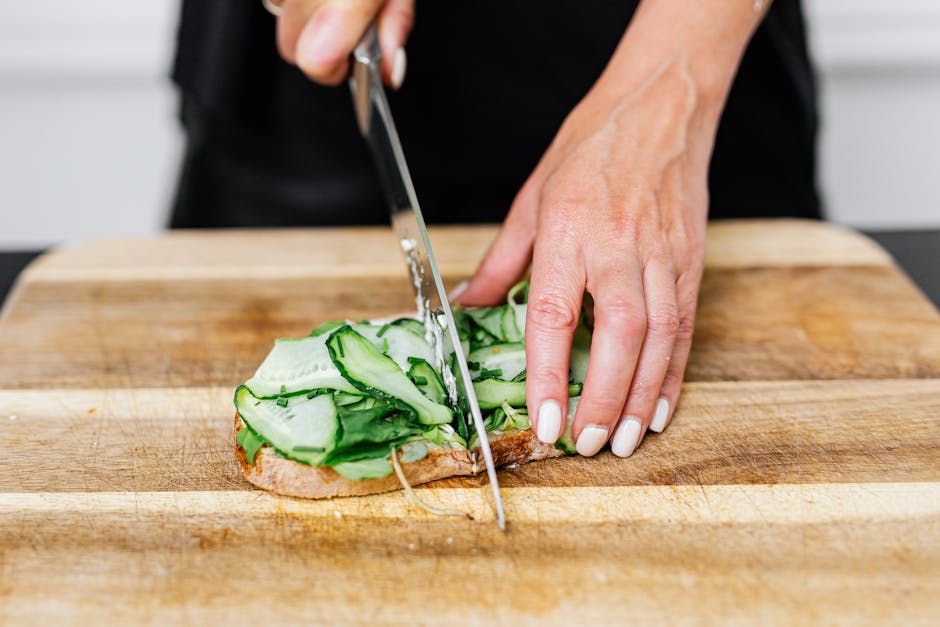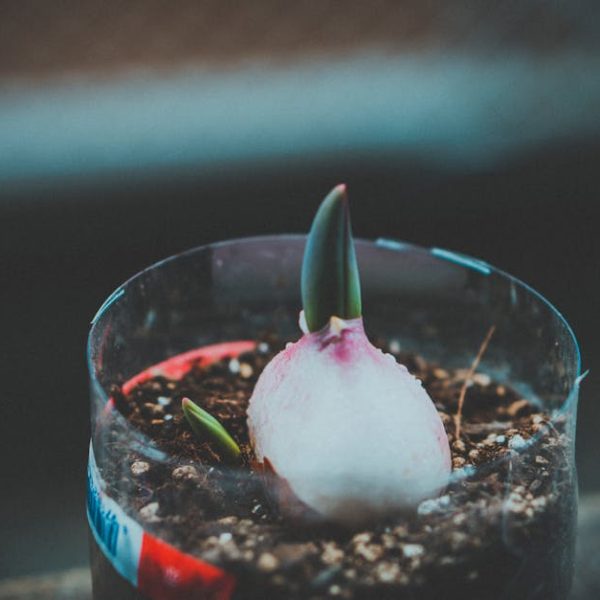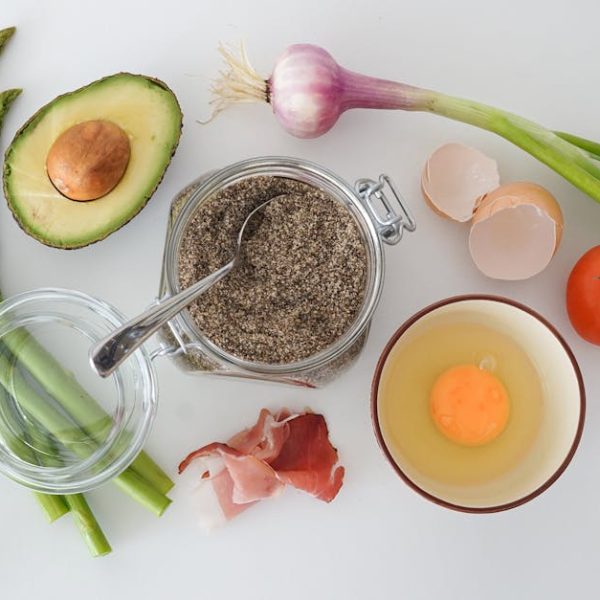Oftentimes, we buy cucumbers only to be disappointed when they go bad before we can enjoy them. But fear not, there are several effective ways you can preserve your cucumbers to extend their freshness. Let’s dive deep into these methods and learn how to keep your cucumbers crispy and delicious for longer.
Method 1: Storing Cucumbers in the Fridge
Storing cucumbers in the refrigerator might appear straightforward, but specific techniques can be applied to ensure that they remain crisp and fresh.
Firstly, remember that cucumbers need a cool, but not too cold environment — around 10 to 12 degrees Celsius (50 to 55 degrees Fahrenheit) is perfect. Secondly, manage the humidity level of your fridge; too much moisture can cause cucumbers to soften and rot. To do this right:
- Wrap the cucumbers in a clean, dry paper towel. This will absorb excess moisture and prevent the cucumbers from becoming soggy.
- Place them in the crisper drawer of your refrigerator, where humidity is more controlled.
- Don’t wash cucumbers before refrigerating. Washing introduces water, which can hasten spoilage.
Most importantly, watch out for signs of cucumber spoilage, such as softening, discoloration, and a sour smell. If any of these are spotted, it’s best to discard the cucumber.
Method 2: Preserving Cucumbers in Water
Preserving cucumbers in water is another excellent method that can further prolong their freshness. Here’s the deal: cucumbers can be kept in a glass container filled with water. This process slows down the enzyme activity that causes cucumbers to deteriorate, thereby allowing them to retain their crispness longer.
This method comes with its own pros and cons. On one hand, cucumbers stored in water stay these fresh longer than those simply kept in the fridge. On the other hand, this method requires room in your refrigerator for a water container and needs the water to be changed regularly.
Dedicate a spot in your fridge for the container and make sure the water is fresh and cold (not ice-cold) for optimal storage. Check the water every day and replace it when it begins to appear cloudy.
Method 3: Using Vacuum Sealing
Vacuum sealing can be an exceptional way to prolong the life of your cucumbers. This method works by removing air from the package, which slows down oxidation and extends the life of the vegetable.
Here’s your vacuum sealing checklist:
- Vacuum sealing machine
- Preserving bags
- Fresh cucumbers
How to proceed? Clean your cucumbers, dry them thoroughly, place them in the preserving bag, and use the vacuum sealing machine to draw out the air and seal the bag. This method can extend the life of cucumbers up to three times as long as just refrigeration.
That said, compared to other methods, vacuum sealing does require an initial investment in sealing equipment. It also confines cucumbers in a tight space which can sometimes hasten spoilage if any moisture is present. Nonetheless, it offers a longer preservation period than many other methods.
Method 4: Preserving Cucumbers by Pickling
Not only does pickling extend the shelf life of cucumbers, but it also adds a delicious tang to their flavor. This traditional method involves soaking cucumbers in a pickling solution, usually a mix of vinegar, water, and salt, sometimes with added spices or sugar.
For pickling you need:
- Cucumbers
- Vinegar (white, cider, or wine)
- Water
- Salt
- Spices (optional)
- Sugar (optional)
- Glass jar
Simply combine vinegar, water, and salt over heat until salt is dissolved, add your spices and sugar if desired, pour over cucumbers in your jar, and let them steep. The acidity in the vinegar effectively preserves the cucumbers and gives them their characteristic pickled taste.
Keep in mind you can adjust the flavor of your pickling solution to match your taste buds. Try adding a bit of garlic or dill for savory pickles, or a touch of sugar for bread and butter pickles!
Method 5: Canning Cucumbers
Canning is an age-old, reliable method to secure the freshness of cucumbers for an extended period. This process involves sealing cucumbers in a sterilized jar and heating it to kill bacteria, yeasts, and molds that could cause spoilage. As the jar cools down, the contents form a vacuum, preventing new microorganisms from getting in and causing deterioration.
The pros of canning cucumbers include lengthy preservation – up to a year or more – and the fact that, once canned, they don’t require refrigeration. The tradeoff, however, lies in the time and care it takes to properly can cucumbers without risking contamination.
Best practices for safe and effective canning include:
- Sterilizing the glass jars before use, either by boiling them in water or placing them in the oven.
- Using fresh, firm cucumbers without any soft spots or blemishes.
- Allowing the canned cucumbers to cool down at room temperature before storing to make sure a proper seal is created.
Additional tips for Maintaining Cucumber Freshness
No matter what preservation method you choose, several general tips can help you maintain cucumber freshness. Prime among these is to buy cucumbers as close to when you plan on using them as possible, and to always choose cucumbers that are firm, bright in color, and free from blemishes or soft spots.
Here’s a handy checklist to consider:
- Are the cucumbers firm to the touch?
- Do they have a vibrant green color?
- Do they lack blemishes or soft spots?
- Are you planning to use them within the next few days?
If you see signs that your cucumbers are not as fresh as they could be, don’t throw them out. Slightly past-their-prime cucumbers can still be used in cooking or for juicing, and moderately faded cucumbers can be brought back to life with a quick soak in ice water.
By understanding and leveraging these preserving techniques, you can keep your cucumbers fresh for longer, making the most out of every purchase and ensuring you always have that refreshing cucumber crunch when you need it.
Key Takeaway:
- The freshness and crunch of cucumbers can be significantly extended beyond their normal shelf life by using various preservation techniques.
- Storing cucumbers in the fridge with controlled temperature and humidity keeps them fresh for a good span.
- Preserving cucumbers in water can extend their freshness beyond that achieved by simple refrigeration.
- Vacuum sealing, although requiring an initial investment, provides long-term preservation benefits for cucumbers.
- Traditional methods, like pickling and canning, not only preserve the cucumbers but also add flavor and enable storage without refrigeration.
- Choosing fresh cucumbers, properly storing them, and using less fresh cucumbers in cooking or for juicing can help maximize the utility of every cucumber purchase.
Remember, the key to freshness lies not only in proper preservation methods, but also in how you select and handle your cucumbers. Pay attention to details like firmness, color, and the absence of soft spots when buying cucumbers. Follow the preservation techniques closely, and you can enjoy the crunch of fresh cucumbers for longer times.
FAQs
Q: How do I know if my cucumber has gone bad?
A: Cucumbers that are going bad will start to soften, show discoloration, and may emit a sour smell. If you notice any of these signs, it’s best to discard the cucumber.
Q: Can I preserve sliced cucumbers?
A: Yes, you can preserve sliced cucumbers using the same methods as whole cucumbers; however, note that they may not stay fresh as long due to their exposed surfaces.
Q: Do pickled cucumbers lose their nutritional value?
A: While the pickling process might reduce some vitamins, pickled cucumbers still retain important nutrients. In addition, the vinegar used in the pickling process is a good source of acetic acid, which has health benefits of its own.
Q: Can I use the canning method without a canner?
A: Yes, you can use a large pot with a lid as long as it’s deep enough to cover the jars with at least 1-2 inches of water. Just make sure to place a rack or a kitchen towel at the bottom of the pot to prevent the jars from directly contacting the heat source.
Q: Do the preserved cucumbers need to be refrigerated after opening?
A: Yes, once the preserved cucumber container is opened, it should be kept in the fridge to maintain freshness and prevent spoilage.
We encourage you to share this article and explore more posts on our website to uncover a treasure trove of culinary knowledge. Enjoy making the most of your cucumbers!






